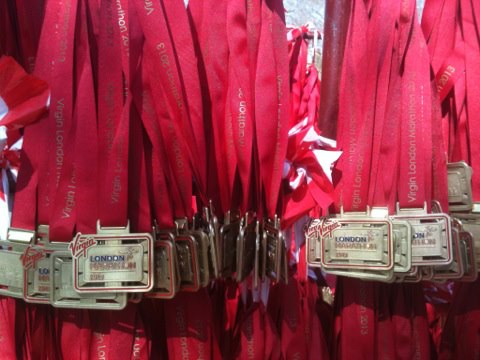If you want to have a go at athletics or hockey – or your kids want to take up cycling, rugby or football you will probably go to your local club. But this club will almost certainly be run by volunteers and will quite likely be close to reaching capacity. So, if we want to deliver a real sporting legacy of more children and adults taking up new sports, we need to find ways of building capacity.
I am proposing that we need a much more effective system for attracting and training volunteers to deliver entry-level sport.
Here is my idea: we don’t need senior (Level 3) coaches to deliver introductory sessions to newcomers – what we need are suitably trained volunteers that can inspire beginners and give them a positive and correct introduction to the sport. We should be putting much more emphasis in recruiting and training club helpers and new coaches to cope with Olympic-generated demand and free up the experienced coaches to concentrate on coaching elite club members. A good example of an effective training programme is England Athletics’ one-day “Leadership in running fitness” course.
Inspiration
The Olympic Games Makers have done wonders for the image of volunteering. If we can’t get sport volunteers to step forward now we never will. We need to build on the enthusiasm that we have from the Olympics to inspire volunteers to get involved and provide a pathway for them to do this. We should be making it easy for a dad to help at a cycling club or a university student to train as an athletics coach.
Recruitment
Clubs need coaches and team managers – and they also need volunteers to put out equipment, look after kit, manage membership systems and do a range of small jobs that you might not think of. If you are a club – how do you advertise these vacancies beyond your membership? If you are a potential volunteer, would you know where to look to get involved?
Welcome and preparation
Volunteers need to be nurtured. If they offer to help a club they should be welcomed with open arms and they need to know exactly what their job involves. Newcomers to coaching need to be trained by attending an Introductory or a Level 1 coaching course. As a minimum for certain roles they need to have safeguarding training. There is helpful Information on coaching courses here: http://sportscoachuk.org/
A fair relationship
Volunteers are entitled to enter into a fair relationship with the organisation they are supporting. The club needs a commitment from the volunteer to turn up at the agreed times and deliver. In turn, the volunteer needs to be properly managed and looked after. If we are to retain good volunteers they need:
- affordable training – it’s right that volunteers make some investment in their own training, but £150 for a Level 1 Coaching course is a deterrent for many
- a schedule that is workable for them and the club – volunteers have limited time available and fear of being asked to do too much is one of the major factors that puts people off volunteering. One idea: could a new helper be paired with another volunteer to job-share?
- to be supervised and mentored – new coaches and other helpers need a contact they can turn to for ideas and advice
- to be kept informed of how the part they are playing fits into what the club is doing as a whole
Clubs have needs too
In turn, the clubs are also going to need practical support to find and look after new volunteers. There is information on http://www.clubmark.org.uk/ about managing volunteers including an outline job description for a volunteer coordinator. This is a key post and one that needs to be filled by an enthusiastic and capable leader.
There is hope
Sport England has set up Sport Makers: http://www.sportmakers.co.uk/ as the official London 2012 Olympic and Paralympic sports legacy. They are aiming to recruit 40,000 volunteers to help make sport happen. If you are looking to volunteer in sport then go to this website today!
The last word
Much of sport in the UK is currently delivered through clubs. These clubs need more volunteers to increase capacity for new participants. I sincerely hope that we can harness the inspiration and deliver volunteers to the sports clubs to make sure we really do make the most of the buzz we are experiencing after an amazingly successful Olympic Games.
“Things do not happen. Things are made to happen.” Let’s make our Olympic Sporting Legacy happen.
Please leave a comment with your legacy thoughts and ideas.

